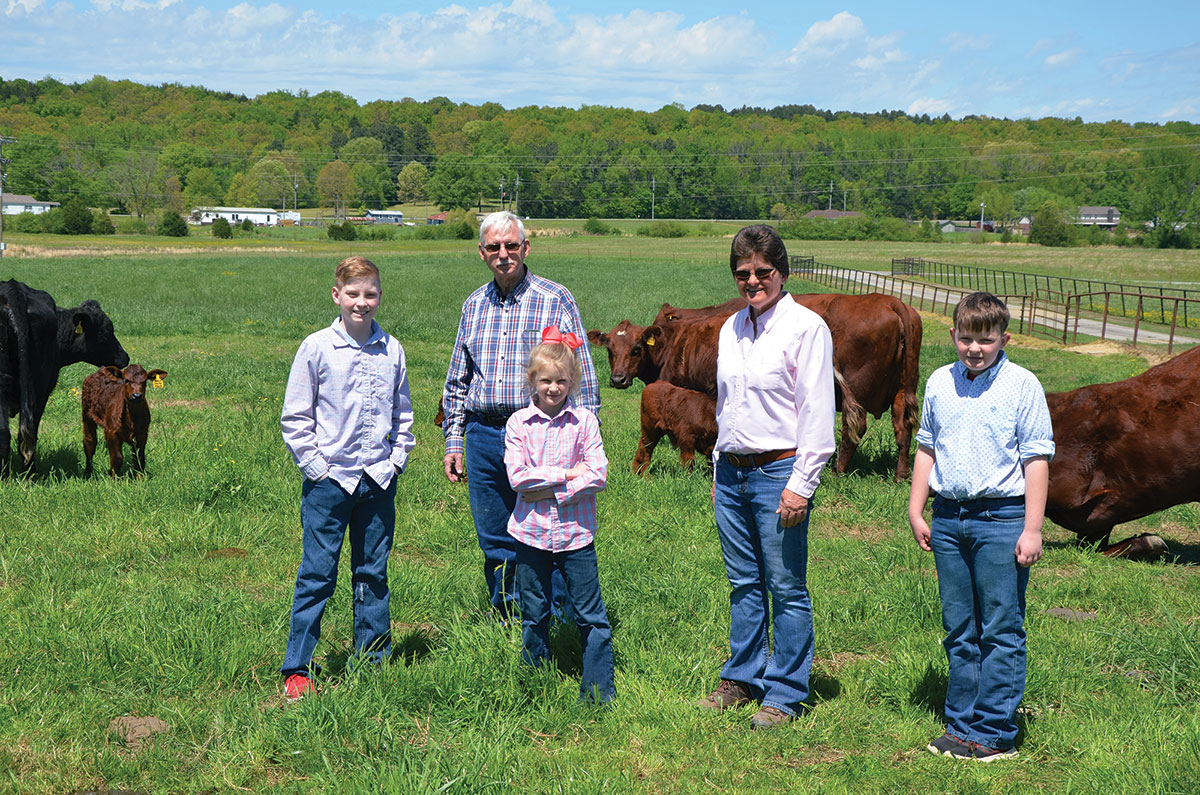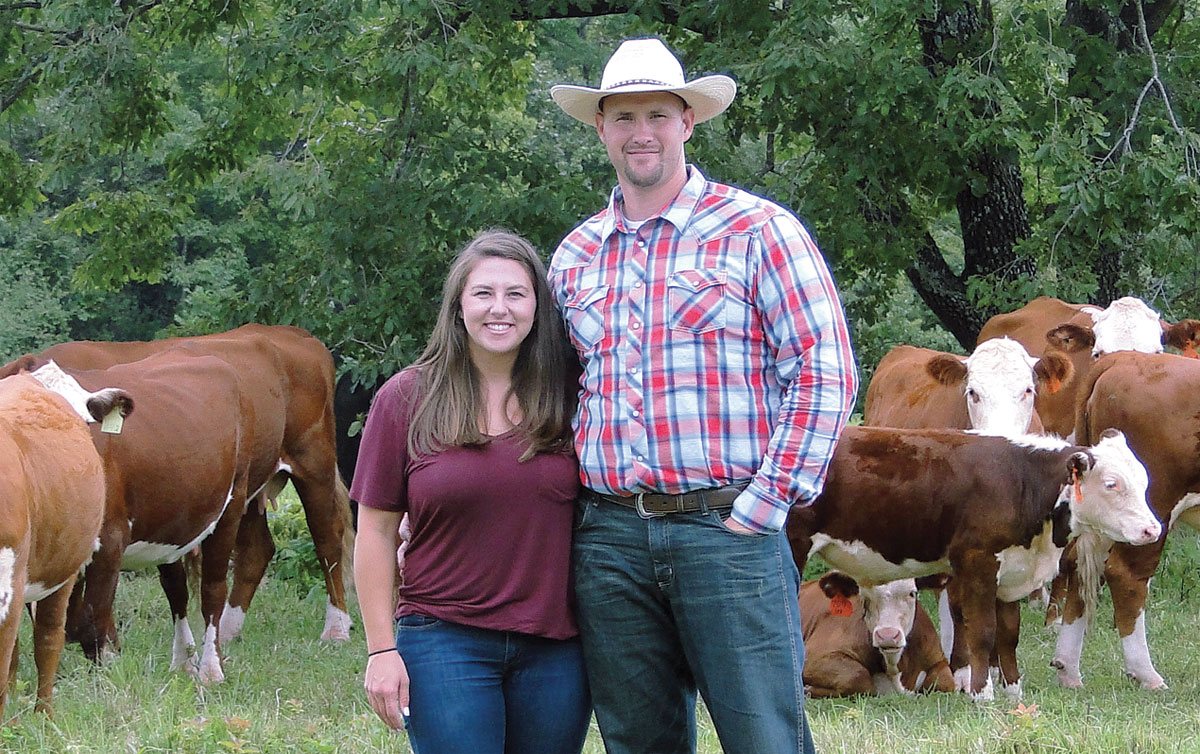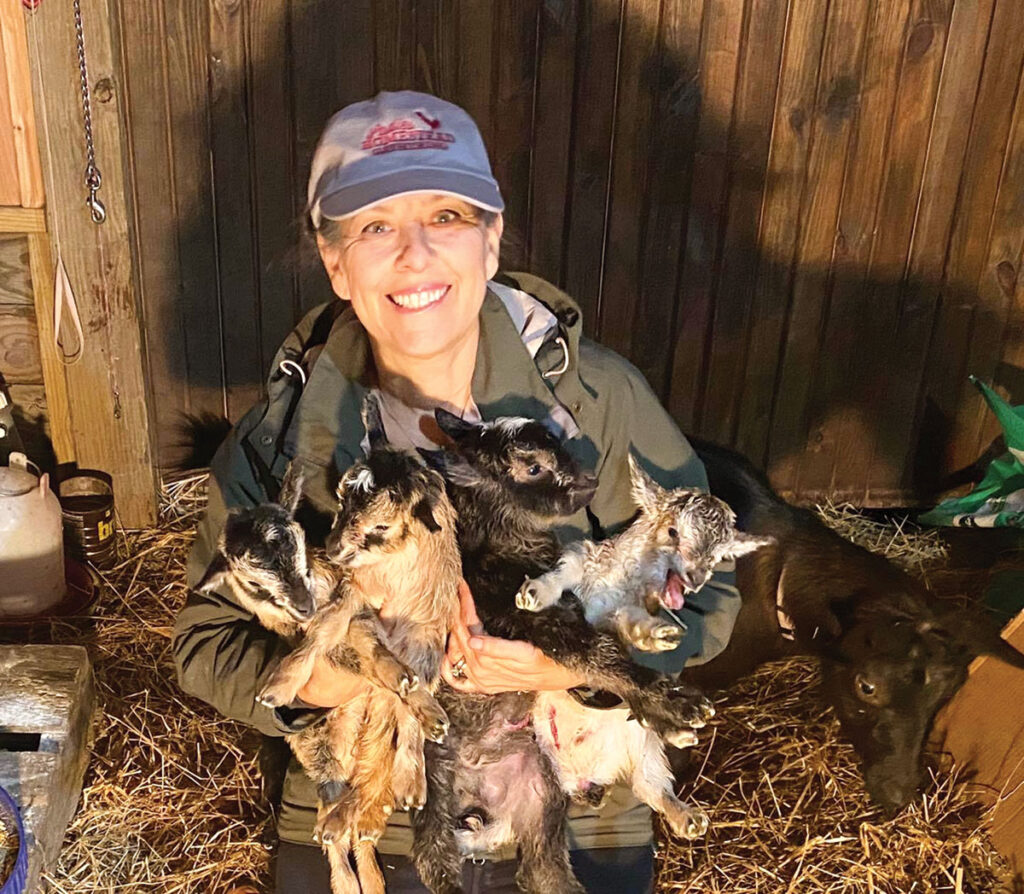
Waterline Farms was started with a goal of using sustainable agriculture practices
PRYOR, OKLA. – Tammi and Stephen Bell have worked hard their entire lives. While Stephen was in the Marines for 25 years, Tammi also served in the Navy and worked as a dental hygienist.
However, when it came time to retire and live an easy life, the Bells had a different plan. It involved moving to Oklahoma and starting their own self-sustainable farm.
The plan may not be the retirement dream for most Americans, but the Bells were looking for something more rewarding than relaxing on a beach. They believe they can help save the planet.
“If people don’t adopt this philosophy throughout the world, we are in serious trouble,” Tammi said, referring to the numerous threats the planet faces today. Everything from climate change to food sustainability. The couple believes these are all issues that farmers around the world can help solve.
This is why Tammi and Stephen created Waterline Farm in Pryor, Okla. Even though their family and friends tried to dissuade them, they both felt strongly about it.
“It was a personal challenge for us to see if we could raise our own food,” Tammi said. “Then everybody’s like, ‘Oh, farming is so hard.’ It is hard, but no harder than leaving your house, commuting for an hour, standing on your feet, picking somebody’s teeth for eight hours, and all the stress that comes with it. It’s inhumane for the human to be in a box under artificial lights staring at a screen or, you know, having people yell at you and everything else that goes on in the workplace.”
The Bells created Waterline Farms with the goal of using sustainable methods free of chemicals to grow their own fruits, nuts and vegetables using permaculture techniques. They wanted to live off everything they produced and for it to be all-natural.
The Bells do not use any external input, such as growth hormones, steroids or antibiotics. But just as importantly, they wanted to let the farm and the farm animals do all the work.
“Every single plant and animal has a purpose,” Tammi said. “So, if you can set up your ecological system, then you don’t have to do a lot of work. So, you don’t have to, plow the field, destroy the soil, bring in irrigation. Everything was meant to work together. You just have to get your whole environment balanced.”
Neither Tammi nor Stephen considered themselves naturalists or saw themselves ever living on a farm. They lived normal routines that included getting their food from grocery stores. But as the years went on, they saw health issues in their household and society in general.
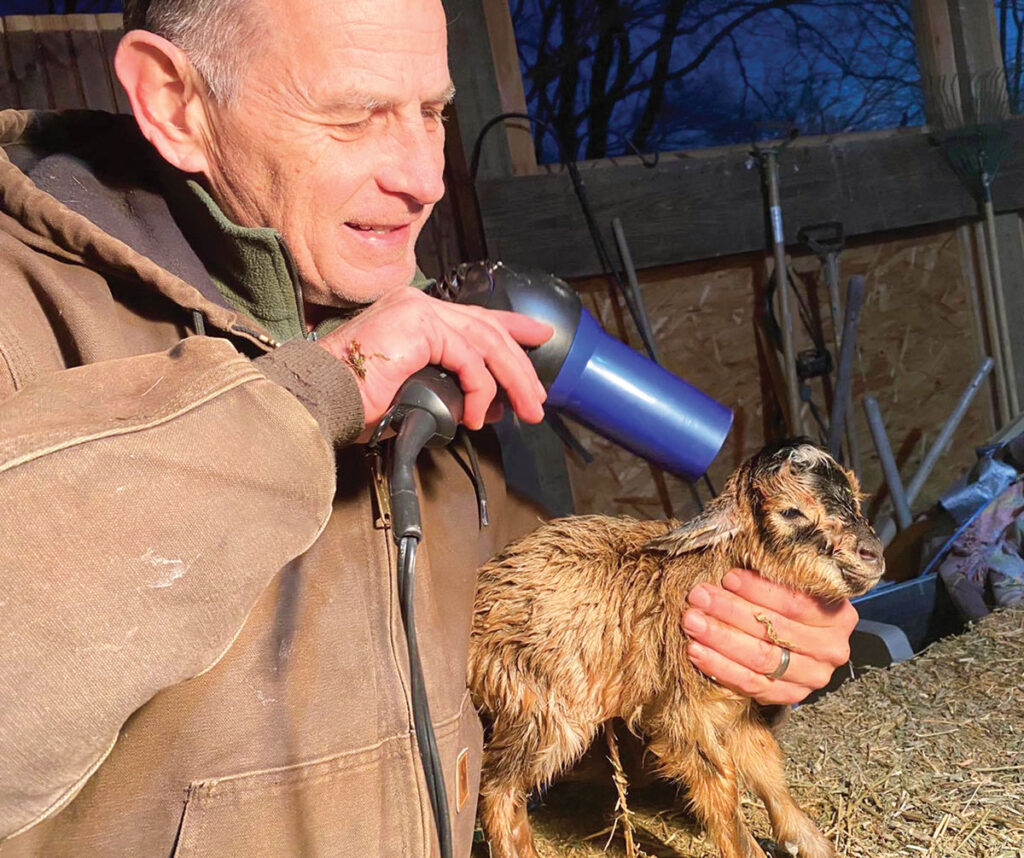
“It started with my husband’s health and just tasting real food that didn’t have any of that extra stuff,” Tammi said. “I started cooking food from scratch, and it’s like no bread, no preservative, no dairy. So that’s what started the quest.”
The Bells moved to Pryor in 2018 and started producing animals in 2019. Even though they knew what they wanted to accomplish with Waterline, how to do it was not so simple. While they had no previous experience, they were willing to try old and new methods to get the job done.
That includes joining Soil for Water in early 2022. It is a free, voluntary program of the National Center for Appropriate Technology. It’s made up of farmers and people who are curious about water and soil practices that create resilient, profitable agricultural systems.
Less than 100 farms in the country are part of the program, and Waterline is one of the few in Oklahoma.
“The first training that we got was Arm to Farm. The University of Arkansas posted a program for beginning veteran farmers, called Arm to Farm. We’ve just had ongoing support since 2019 with them,” Tammi said. “We were the first farm in Oklahoma to be a designated Soil for Water farm. You can’t have excess water, don’t use fertilizer and don’t use pesticides. We’re just doing all we can to sequester carbon, stable water. We have never tilled up anything.”
Waterline has grown to 30 acres of farmland. The Bells raise American Guinea Hogs, sheep, turkeys, ducks and chickens, who all live and congregate in the same spaces, and are integrated into a rotational pasture system. The couple utilized a cost-share grant from the USDA to construct waterlines to provide water for their livestock.
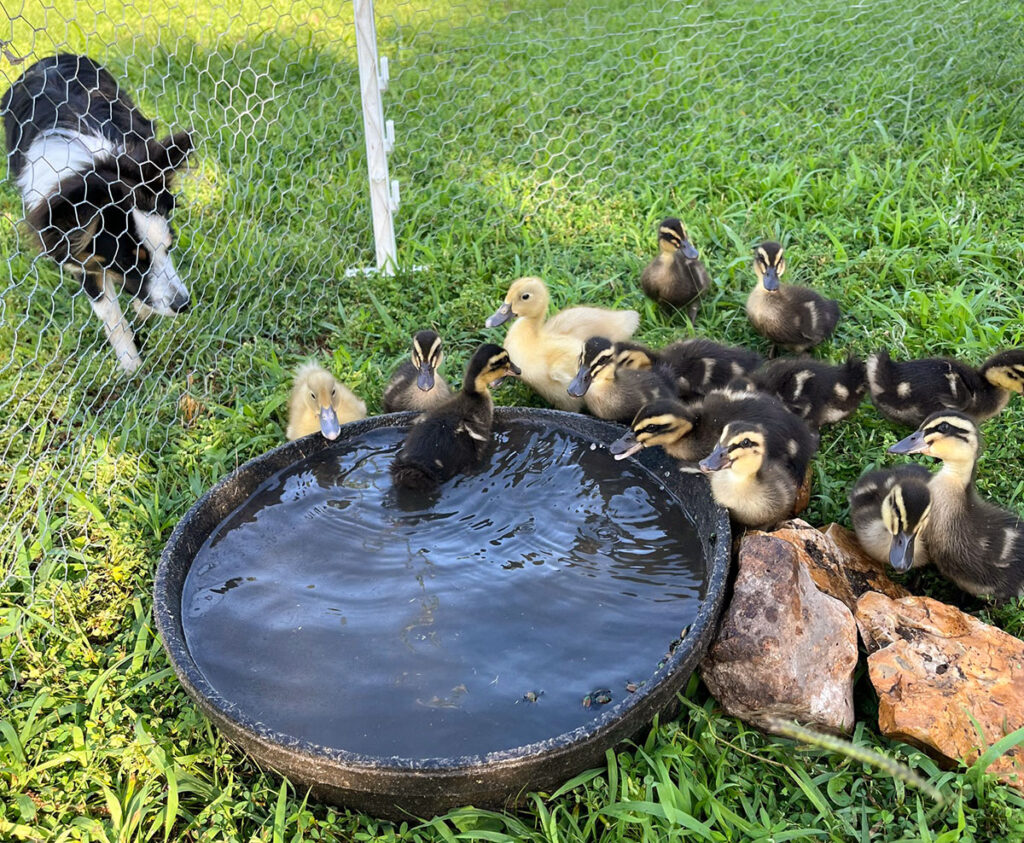
Waterline also produces a variety of fruits and vegetables using polyculture techniques, which is the method of planting multiple crops in the same field. Farmers will replicate the natural conditions of an ecosystem for plants or animals.
When the Bells began using the polyculture process, several other farmers told them it would not work. The Bells, however, believed in the process.
“Really, the toughest part for the first three years was almost feeling like a failure because you put so much in, but you really don’t get anything back,” Tammi said. “But the last few years, we have been getting so much. Everything is starting to work. We just had to get all the systems in place and get the animals growing to where we consistently can raise healthy animals that people are starting to buy and recognize the difference between our products and Walmart; it doesn’t matter the price. They would rather have what we have.”
Waterline Farm and the Bells have received various awards for their agriculture stewardship, include the Fund-a-Farmer Grant from the Food Animal Concerts Trust.
The Bells’ goal with Waterline Farm is to become a homestead demonstration site practicing regenerative agriculture with an emphasis on ecological stewardship.
“In the next five years, I want to have an ecotourism site where people can come and stay in a covered wagon and a tepee situation set up for a family,” Tammi said. “Where you can come and cast-iron cook on the hill overlooking the lake, gather up the walnuts and peaches, pick berries and be like an old tiny farm immersion experience. It’s just going to be like the Garden of Eden, like how it’s supposed to be.”






